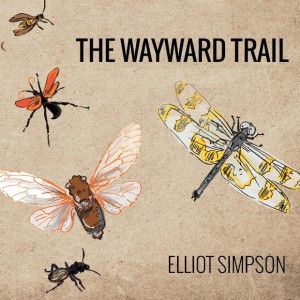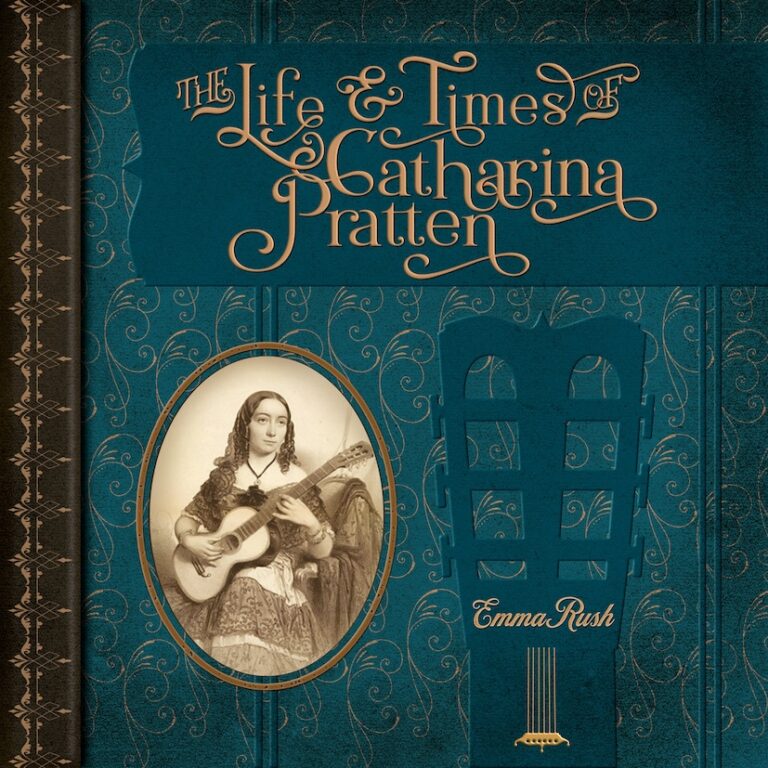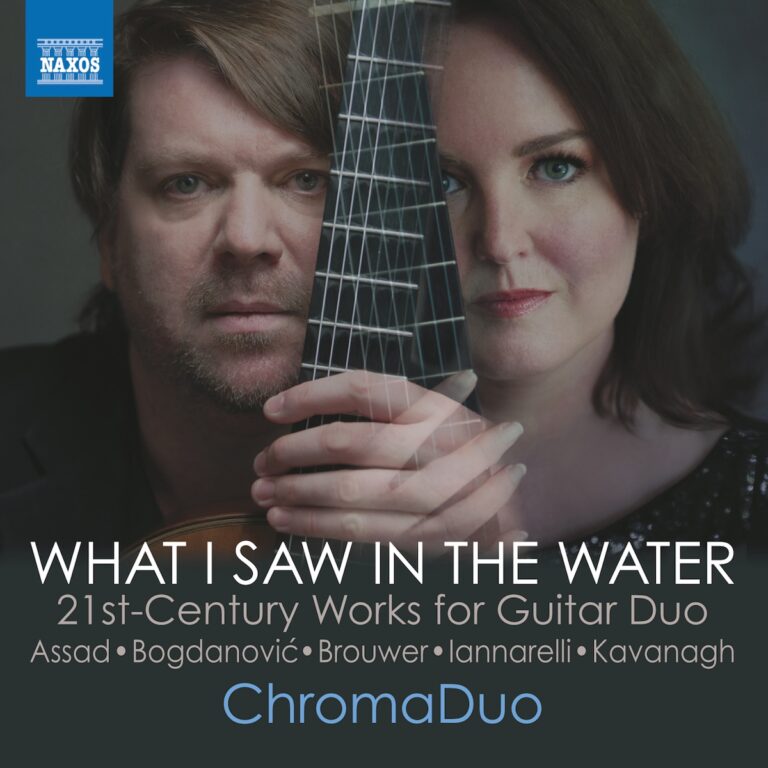The Wayward Trail
Elliot Simpson, Just Intonation Guitar
MicroFest Records 2015
Executive Producer: John Schneider
Buy or listen to Samples on Amazon or SoundCloud
The last two album reviews featuring just intonation were John Schneider’s Harry Partch and Ben Johnston recordings. Through his MicroFest Records label comes this excellent album by American-born guitarist Elliot Simpson. If you’re not familiar with MicroFest, “Grammy winning producer John Schneider and Grammy nominated pianist Aron Kallay, themselves critically acclaimed performers of ‘microtonal’ music, created MicroFest Records to share their love of exciting repertoire that is simply unavailable anywhere else” (MicroFest). This album is no exception and is extraordinary for its music, the instrument, and quality performances by Simpson.
The Repertoire
15 Zwiefache Transzendiert (1977-81) – [7:40] by Walter Zimmermann
Steel Suite (2003-2008) – [16:41] by David B. Doty
Prelude (tastar de corde)
Balkan Dance
A New Waltz in Pelog
Gigue (Maggie’s Jigs)
Songs and Toods (2005) – [27:49] by Larry Polansky
Schneidertood
Dismission of Great I
Sweet Betsy from Pike
Eskimo Lullaby
85 Chords
Forward (2014) – [13:58] by Ezequiel Menalled
The album is filled with a variety of music from composers at the forefront of new music and microtonal writing. The works can draw a historical influence back to composer Harry Partch who was a pioneer in the field and “would come to refer to his complex stylistic development as a ‘wayward trail’.” My personal favourite from the album is the beautiful work by Zimmerman filled with spacious and sparkling harmonics. It’s a wonderful piece to become lost in as the drifting motifs delicately bounce about in alternating duple and triple meter. Steel Suite by Doty is a bit more rustic but delivers some interesting folky dances and energy. Coincidently, I’ve been working on transcriptions of Dalza (fl. 1508) which is, as I far as I know, the first reference to “tastar de corde” (in Italian, literally, “testing of the strings”) meaning a prelude exploring chords. The work by Larry Polansky throws us a more dissonant flavour along with exploring what that means on the unique instrument. The folk tunes that appear gave me an occasional giggle but many of the musical settings were very touching. I’m assuming it’s Simpson himself singing on the album. The Trumpet on 85 Chords is played by Justin Christensen. Forward by Ezequiel Menalled is an extended and spacious exploration of the harmonies and further microtone possibilities as the performer tampers with the tuning of the open strings. The lovely recording quality and the clear sound of the instrument make this a wonderful closing of the album. Fantastic playing by Simpson, I love the sound of the instrument. Steel-strings record better than nylons, the album sparkles in the higher register but also has a rich low-end.
For more information on the album read the full liner notes online at MicroFest – The Wayward Trail.
Summary
The Wayward Trail by Elliot Simpson ranges from beautiful soundscapes to rustic dances and is filled with the mysterious harmonies of the unique just intonation guitar. The best thing about this album is not just its contribution to new music but the absolutely wonderful listening experience it gives to both new music fans and general listeners. I’d be hard-pressed to find a more interesting and engaging new music guitar album.
– Bradford Werner, thisisclassicalguitar.com
The instrument: Simpson plays one of five steel-string guitars produced by the National Reso-Phonic Guitar Company. As the liner notes explain:
“Towards the end of his life, Lou Harrison responded to a commission by the Other Minds Festival by composing a three-movement piece, Scenes from Nek Chand, for a metal-bodied resophonic guitar capable of producing just intervals. This unique instrument was brought to life thanks to the combined efforts of guitarist John Schneider, composer/theorist Bill Alves, Harrison’s assistant Bill Slye, and the National Reso-Phonic guitar company (who between 2003 and 2005 minted five copies of the design, one of which appears on this recording). In the intervening years the just intonation resophonic guitar has struck the imagination of younger generations of composers and performers, effectively bringing the legacy of Partch’s experimentalism into the twenty-first century. The guitar is tuned to a just intonation scale built on a hypothetical low G (a perfect fifth below the pitch of its lowest string), incorporating ratios derived from up to the eleventh partial. In its default DADGAD open string tuning the guitar offers rich 11-limit harmonic collections on G and D fundamentals; as we will see, more complex intervals can be incorporated through further modification of the open string configuration. The resophonic guitar’s three resonating cones, metal-body construction, and newly implemented rational tuning combine to produce a glowing sound, yielding greater volume, sustain, and harmonic complexity than conventional steel- or nylon-string guitars.”






